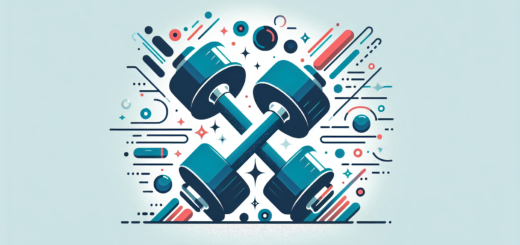Understanding the Distinction: Health-Related Fitness versus Skill-Related Fitness
In the realm of fitness, it’s important to understand the distinction between health-related fitness and skill-related fitness. While both are crucial aspects of overall wellness, they focus on different aspects of physical competence. Health-related fitness encompasses cardiovascular endurance, muscular strength and endurance, flexibility, and body composition – all of which are essential for maintaining a healthy body and reducing the risk of chronic diseases. On the other hand, skill-related fitness refers to the ability to perform specific motor tasks efficiently and effectively, such as agility, coordination, balance, power, speed, and reaction time. By gaining a deeper understanding of these two distinct categories, you can better tailor your fitness routine to meet your individual goals and needs.
What is health-related fitness?
Health-related fitness refers to the physical attributes and abilities that are related to the overall health and well-being of an individual. It encompasses various components that contribute to one’s overall physical fitness, such as cardiorespiratory endurance, muscular strength and endurance, flexibility, and body composition. Health-related fitness is essential for maintaining a healthy lifestyle and preventing chronic diseases.
Components of health-related fitness
Cardiorespiratory endurance
Cardiorespiratory endurance refers to the ability of the heart, lungs, and blood vessels to effectively deliver oxygen and remove waste products during sustained physical activity. It is a measure of how efficiently the cardiovascular system functions. Activities that improve cardiorespiratory endurance include running, swimming, cycling, and aerobic exercises.
Muscular strength
Muscular strength involves the ability of the muscles to exert force against resistance. It is essential for performing tasks that require lifting, pushing, or pulling heavy objects. Strength training exercises like weightlifting, push-ups, and squats help improve muscular strength.
Muscular endurance
Muscular endurance is the capacity of muscles to sustain repetitive contractions over an extended period. It allows individuals to perform activities for an extended duration without fatigue. Examples of exercises that improve muscular endurance include planks, lunges, and sit-ups.
Flexibility
Flexibility refers to the range of motion around a joint or series of joints. It is crucial for maintaining good posture, preventing injuries, and allowing comfortable movements. Stretching exercises such as yoga and Pilates can help enhance flexibility.
Body composition
Body composition refers to the proportion of fat, muscle, and other tissues in the body. It is an important indicator of overall health and fitness. Achieving a healthy body composition involves maintaining a balance between muscle mass and body fat through a combination of regular exercise and a well-balanced diet.
Importance of health-related fitness
Health-related fitness plays a significant role in maintaining optimal health and well-being. Regular engagement in activities that improve health-related fitness offers numerous benefits, including:
-
Disease prevention: Regular exercise and a healthy body composition can help prevent chronic conditions such as heart disease, diabetes, and obesity.
-
Weight management: Maintaining a healthy body composition through regular physical activity helps manage weight by burning calories and building lean muscle mass.
-
Improved cardiovascular health: Enhancing cardiorespiratory endurance reduces the risk of heart disease, lowers blood pressure, and improves overall cardiovascular health.
-
Increased energy levels: Regular exercise boosts energy levels, reduces fatigue, and improves overall stamina and endurance.
-
Enhanced mental health: Physical activity releases endorphins, which are natural mood elevators, leading to reduced stress, anxiety, and improved mental well-being.
-
Better sleep quality: Regular exercise promotes better sleep patterns, aiding in adequate rest and rejuvenation.
-
Improved cognitive function: Engaging in physical activities that improve health-related fitness has been shown to enhance brain health, memory, and cognitive function.
How to improve health-related fitness
Improving health-related fitness requires consistent effort and a well-rounded approach. Incorporating the following strategies into your daily routine can help enhance overall physical fitness:
Engaging in aerobic exercises
Aerobic exercises, also known as cardiovascular exercises, involve rhythmic and continuous movement of large muscle groups, incorporating both the upper and lower body. Activities such as brisk walking, jogging, swimming, cycling, and dancing can help improve cardiorespiratory endurance.
Incorporating strength training
Strength training exercises should be included in your fitness routine to enhance muscular strength and endurance. Utilize resistance training methods, such as lifting weights, using resistance bands, or performing bodyweight exercises like push-ups, squats, and lunges.
Including flexibility exercises
To improve flexibility, include stretching exercises in your fitness regimen. Activities like yoga, Pilates, and static stretching help increase the range of motion in your joints, improve posture, and prevent injuries.
Maintaining a balanced diet
A healthy diet is essential for maintaining optimal health-related fitness. Incorporate a variety of fruits, vegetables, whole grains, lean proteins, and healthy fats into your meals. Stay hydrated and limit the intake of processed foods, sugary drinks, and excessive amounts of saturated fats and sugars.
What is skill-related fitness?
While health-related fitness focuses on overall physical well-being, skill-related fitness refers to the specific attributes and abilities required for various sports and activities. It comprises components such as agility, balance, coordination, power, reaction time, and speed. Skill-related fitness plays a crucial role in performing specific athletic tasks effectively.
Components of skill-related fitness
Agility
Agility refers to the ability to change direction and position quickly and efficiently while maintaining control and balance. It is vital for sports that involve rapid movements, such as basketball, soccer, and tennis.
Balance
Balance is the ability to maintain stability and control over your body’s position. It is essential for activities that require controlled movements, such as yoga, gymnastics, and dance.
Coordination
Coordination involves the ability to synchronize different parts of the body to accomplish a specific movement pattern accurately and efficiently. It is crucial for sports like basketball, soccer, and baseball that require precise and coordinated movements.
Power
Power is a combination of strength and speed, representing the ability to exert maximum force in the shortest amount of time. It is essential for explosive movements in sports like weightlifting, sprinting, and jumping.
Reaction time
Reaction time is the speed at which an individual can respond to a stimulus. It is vital for sports that require quick decisions and reflexes, such as tennis, boxing, and volleyball.
Speed
Speed refers to the ability to perform movements or cover a distance quickly. It is essential for sports like sprinting, swimming, and soccer, where maintaining a high pace is crucial.
Importance of skill-related fitness
Skill-related fitness is crucial for individuals who engage in specific sports or activities that require specialized physical abilities. Some benefits of improving skill-related fitness include:
-
Enhanced athletic performance: Improving specific skills enhances performance in sports and activities by developing the necessary attributes required for success.
-
Reduced risk of injuries: Enhancing skills such as agility, balance, and coordination can help prevent injuries by improving body control and stability.
-
Greater sports enjoyment: Developing skill-related fitness enhances competence and confidence in sports, leading to increased enjoyment and satisfaction.
-
Transferable skills: Skills acquired in one sport or activity can often be transferred to others, allowing individuals to excel in various physical pursuits.
Skills required for different sports or activities
Different sports and activities require distinct skill sets. Here are some examples of skills required for specific sports:
Basketball
Basketball requires agility, coordination, speed, and good hand-eye coordination. Skills like dribbling, shooting, passing, and being able to change direction quickly are essential for success in basketball.
Soccer
Soccer demands agility, balance, coordination, power, and speed. Players need to possess skills like dribbling, shooting, passing, and quick decision-making.
Gymnastics
Gymnastics relies on agility, balance, coordination, power, and flexibility. Skills like tumbling, flips, jumps, balance beam routines, and intricate floor exercises require a combination of these attributes.
Track and field
Track and field events require a variety of skills depending on the specific discipline. Sprinting demands speed, power, and reaction time, while long jump requires coordination, balance, and power. Distance running necessitates cardiorespiratory endurance and muscular endurance.
Finding a balance between health-related and skill-related fitness
Both health-related and skill-related fitness are important for overall physical well-being and success in specific activities. It is crucial to find a balance between the two to ensure optimal development and performance. Incorporate a variety of exercises and activities that target both health-related and skill-related components of fitness into your routine. This can include a combination of aerobic exercises, strength training, flexibility training, and skill-specific practice. Remember to listen to your body, vary your workouts, and seek professional guidance if needed to personalize your fitness journey.
















It's great that you talked about how business insurance can provide financial protection against unexpected events and help ensure the…
I like that you mentioned how business insurance is essential for protecting your bottom line and the long-term viability of…